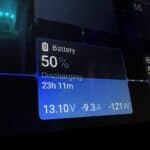
MENUMENU
TALK TO AN EXPERT
Special Hours: 7AM – 6PM PST
TALK TO AN EXPERT
Special Hours: 7AM – 6PM PST
When it comes to adding solar power to your RV, boat, or off-grid setup, one of the first decisions you’ll face is whether to go with flexible or rigid solar panels. Both can effectively power your adventures, but they serve very different purposes depending on your installation space, mobility needs, and budget.
Flexible solar panels have opened new possibilities for curved or lightweight applications where traditional glass panels simply won’t fit. However, that flexibility comes with trade-offs in cost, efficiency, and longevity.
In this guide, we’ll break down the key differences, pros and cons, and best use cases for each panel type.
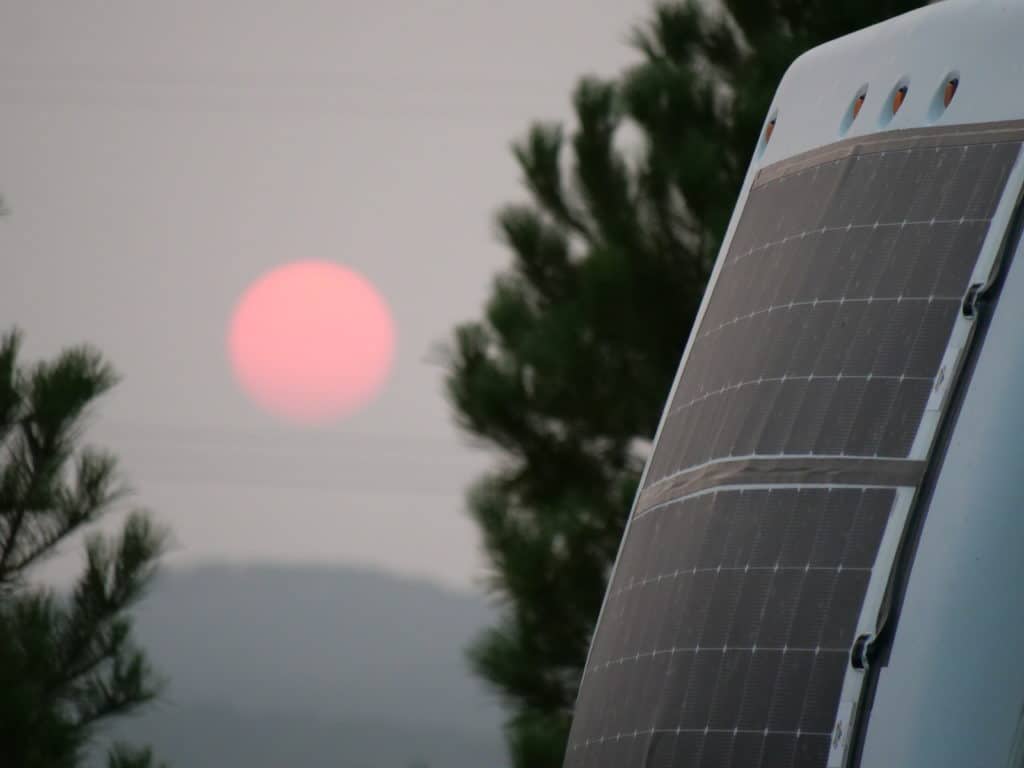
As you might expect, the primary difference is whether or not the panels are capable of bending without breaking or suffering serious damage.
Traditional rigid panels are stiff to the touch, while flexible ones can be partially twisted or manipulated in a number of ways. This extremely important difference results from their thin plastic construction rather than the glass-encased version used for rigid panels.
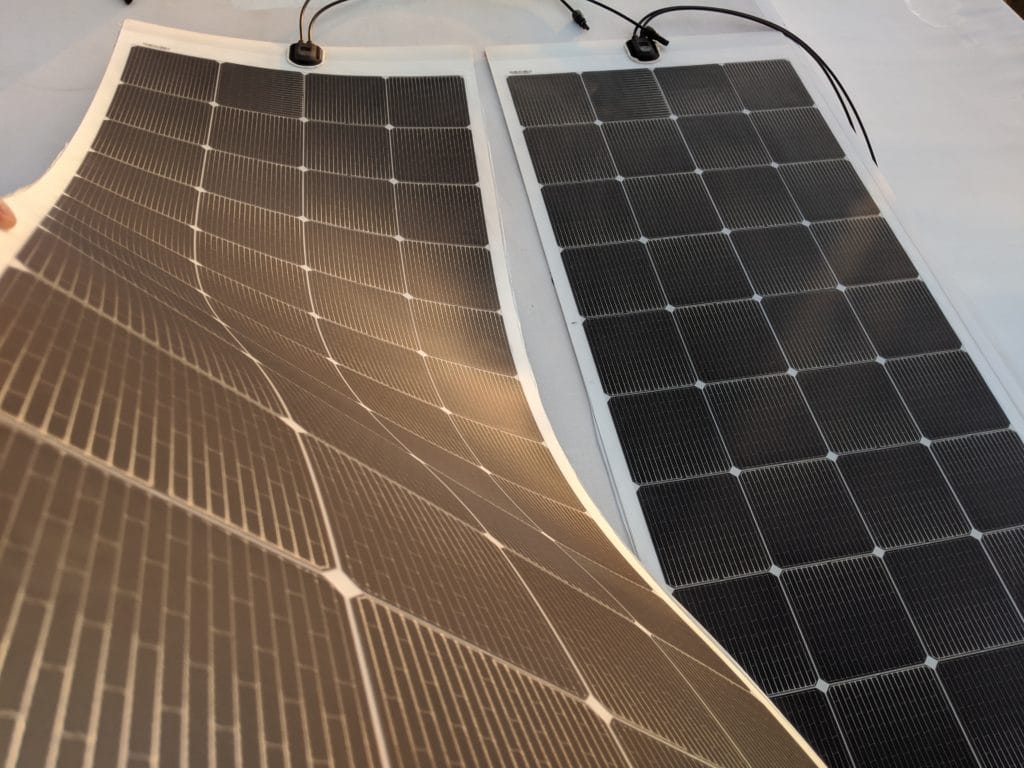
Not all flexible solar panels are created equal. Here are the most common types you’ll see when shopping:
Flexible solar panels have numerous advantages over their rigid counterparts. The biggest of these is their flexibility, both literally and figuratively. Through their ability to bend, they can be mounted in far more configurations and locations than traditional panels.
Flexible panels are also significantly lighter and lower profile, another advantage when it comes to expanding where you can set them up or keeping weight down on a vehicle.
In many cases, they’re also easier to install. Some models are as simple as peel and stick or using double-sided tape or other adhesives. You can mount some flexible solar panels in just minutes. This is also a valuable feature for those concerned about drilling holes into their mounting surface, which could let in water and cause damage.
Pro tip: If you’re exploring marine applications, check out our guide on the best options for solar on a sailboat for more in-depth insight.
One of the biggest cons of flexible vs. rigid solar panels will be apparent as soon as you start shopping.
Flexible panels tend to cost significantly more than comparable rigid panels due to the technology required to produce them. This might place flexible panels outside the budget of some would-be solar power users.
Flexible models also have higher long-term costs, as they generally don’t last as long as rigid ones. Owners have to buy new, expensive panels more often. In most cases, flexible panels also generate electricity less efficiently, which is a potential concern for users who need every watt.
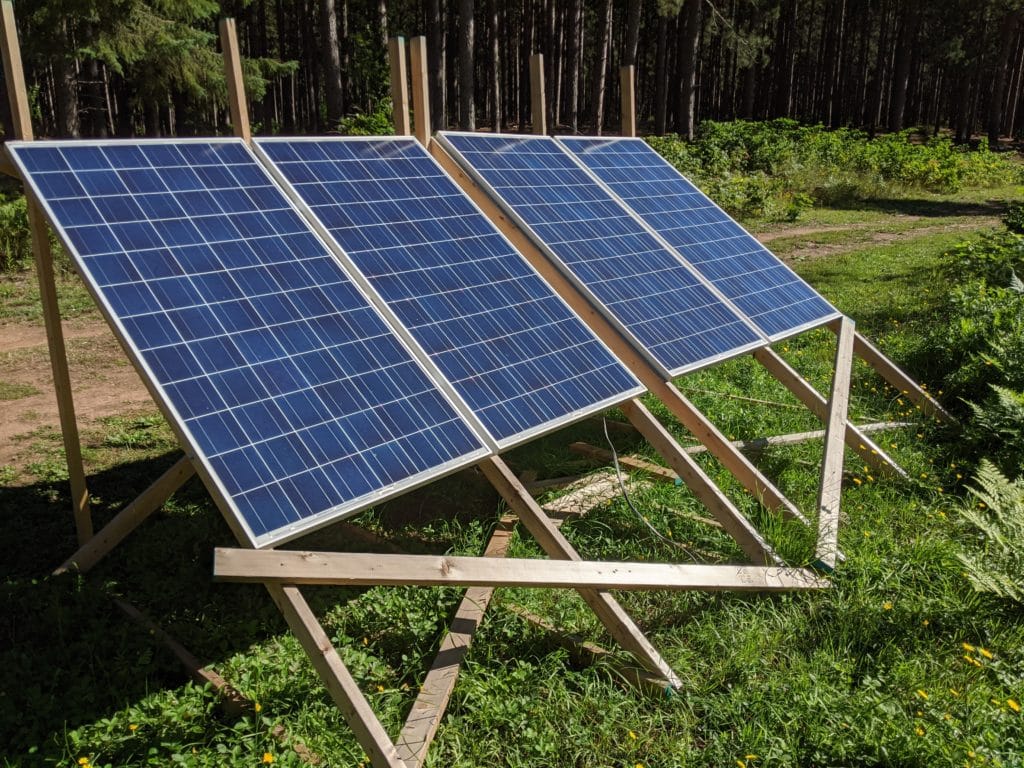
Because flexible panels are typically mounted directly to the surface they are on, they also have no air gap to help cool them. On hot days, the panels can get very hot, and when they do, they produce less power. Hot panels can lose up to 20% of their rated output.
This heat can also transfer into the surface they are adhered to, making whatever they are attached to hotter. This may not be ideal on an RV roof on a hot summer day.
Several factors determine how long a solar panel lasts, from normal wear and tear to unexpected damage from weather, animals, or other sources.
However, flexible solar panels tend to see their primary stress from how they are bent for installation. As a result, owners can expect their panels to last roughly 5 to 15 years. While this may sound like a good while, flexible solar panels wear out faster vs. rigid ones. Rigid panels can often operate for 25-40 years under normal conditions.
Deterioration of flexible panels can also occur due to the plastics that encase them breaking down in the UV. This can lead to clouding and loss of efficiency. Ridged panels use glass that is resistant to sun and weather damage. Because of this, you rarely see flexible panels used in building or stationary applications.
Vehicular use can extend flexible panel life significantly if it is covered when not in use. These panels degrade mainly by UV damage.
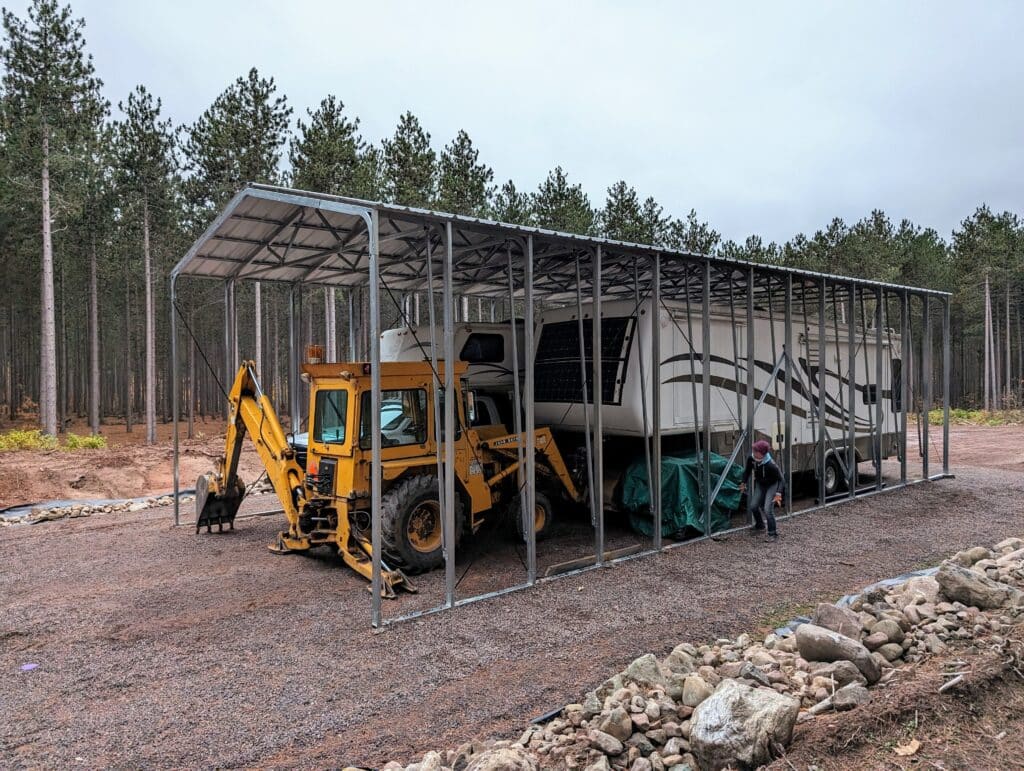
There’s a notable difference in the likelihood of overheating when considering flexible solar panels vs. rigid ones. However, this is primarily due to the way you mount each type.
Flexible solar panels tend to lie flat against the surface they adhere to, exposing them to this radiated heat in addition to their own heat from sun exposure.
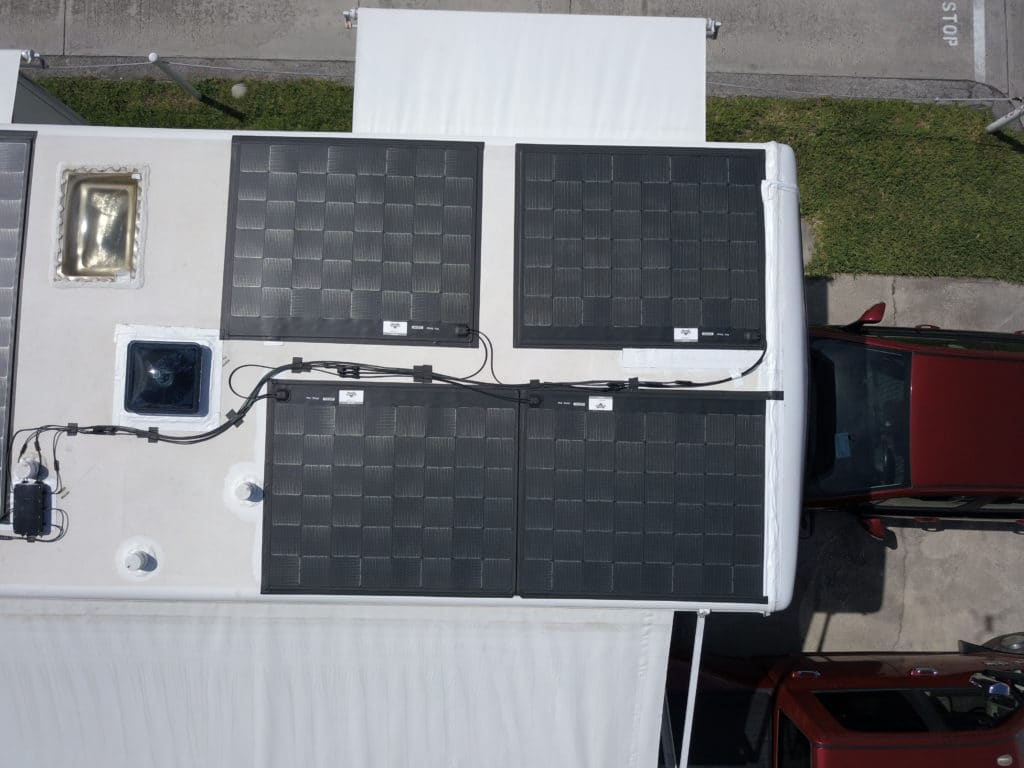
On the other hand, the more substantial mounting hardware required to use rigid panels also raises them and allows airflow to cool the bottom of the panels. This typically results in less common overheating.
Of course, flexible panels can also take advantage of this cooling if mounted with space. But, that would remove one of their primary benefits: the ability to conform to any shape with a low profile.
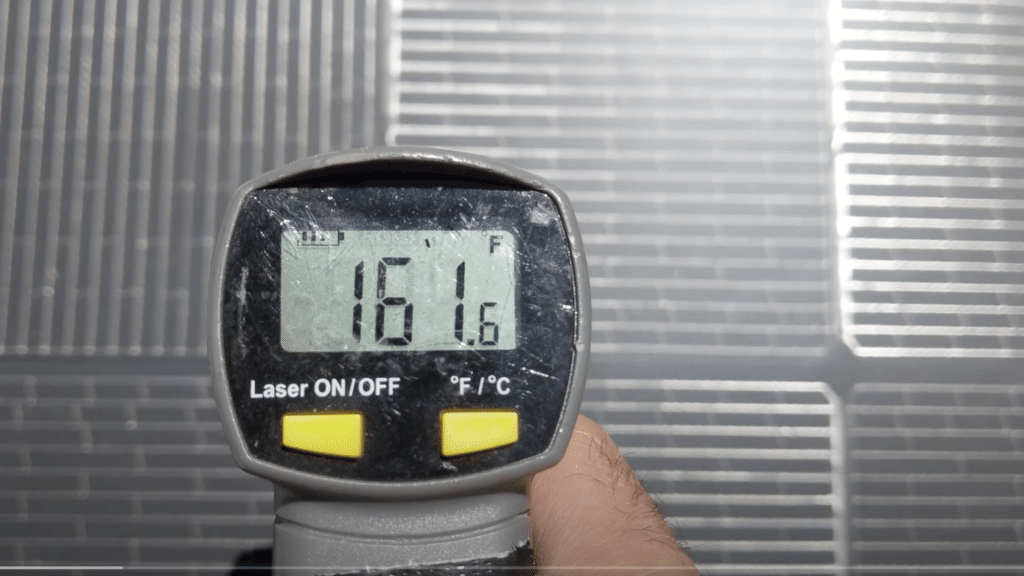
Weight is one category where flexible panels are the clear winners.
Most flexible solar panels weigh roughly 4 to 5 pounds (1.8 to 2.5 kg) each, with different models varying slightly within this range. That’s far less than traditional panels, which usually weigh between 30 and 50 lbs.
This difference can really add up, especially for mobile solar setups or systems with many panels. Therefore, when considering flexible solar panels vs. rigid solar panels, those looking for lightweight solutions should opt for flexible ones.
Mounting methods will vary from brand to brand, but the easiest models may already have adhesive tape on the back. This leaves owners to simply peel off the protective backing and stick the panel wherever they want it.
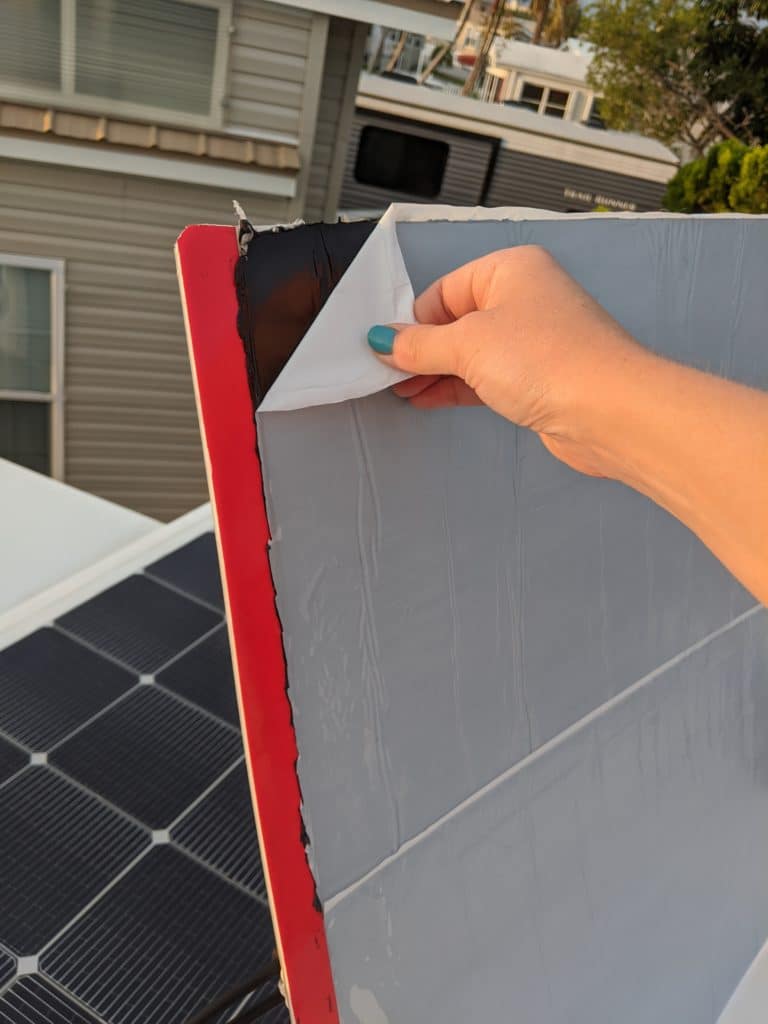
In other cases, you’ll need double-sided tape that you apply yourself. Alternatives include Velcro-style adhesives for those who want to remove their panels occasionally. Some have also had success gluing panels to mounting surfaces. Take care to avoid long-term damage to the object you attach the panels to if you opt for this.
Finally, you can attach some flexible solar panels like traditional panels by screwing them into the mounting surface, either directly or with additional mounting hardware. This versatility is one of the flexible solar panels’ most significant advantages.
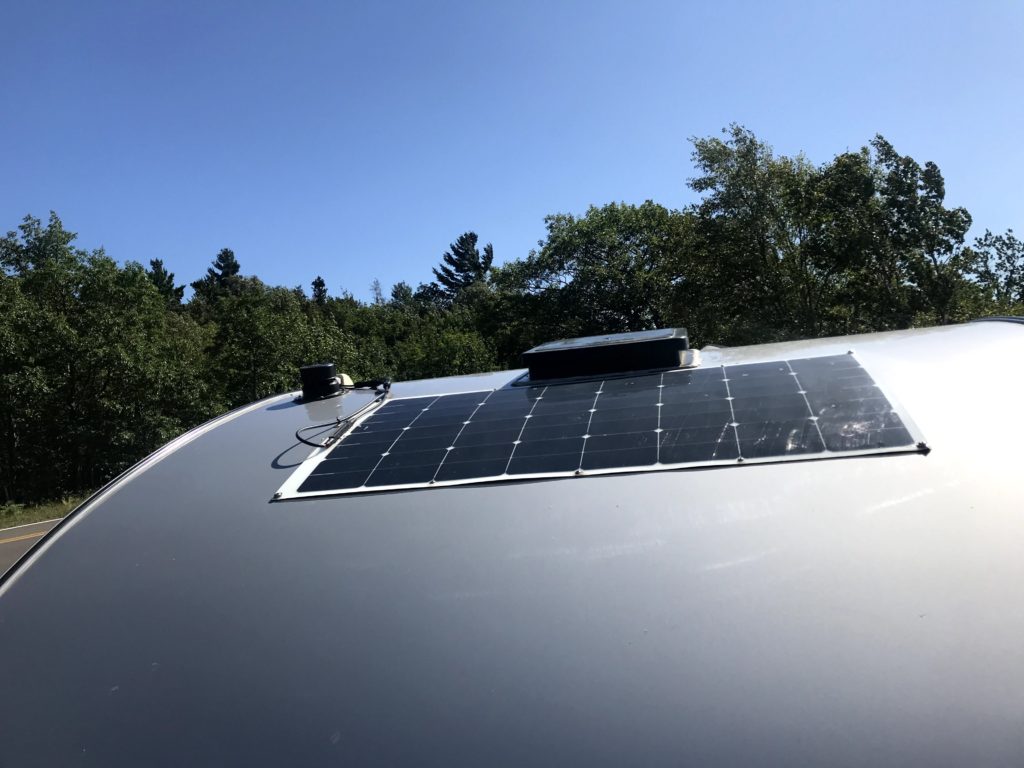
Choosing between flexible and rigid solar panels comes down to your setup, power needs, and budget.
Quick takeaways:
Whatever you choose, pairing your solar array with a reliable Battle Born lithium battery bank ensures you capture and store every watt efficiently—helping you stay powered and off-grid longer.
Q: Are flexible solar panels any good?
A: Yes, flexible solar panels can be an excellent choice for certain applications. They’re lightweight, low-profile, and can conform to curved or uneven surfaces—making them ideal for RVs, boats, and mobile setups. However, they generally cost more, produce less power, and have shorter lifespans than rigid panels.
Q: Can flexible solar panels be just as powerful as rigid ones?
A: Not typically. Rigid panels are more efficient and generate more power per square foot, especially in high-heat or high-demand systems. Flexible panels trade some efficiency for versatility, performing best when space or mounting flexibility is a priority.
Q: Do flexible solar panels need airflow underneath?
A: Yes. Because they’re often mounted directly to a surface, flexible panels can retain heat. Allowing for airflow beneath them—or installing them in a way that limits heat buildup—helps maintain performance and extend their lifespan.
Q: Can I walk on flexible solar panels?
A: Most flexible panels aren’t designed to be walked on. Some semi-flexible models can handle light pressure occasionally, but repeated walking or bending can cause internal damage to the cells.
Q: How long do flexible solar panels last compared to rigid panels?
A: Flexible panels usually last between 5–15 years, while rigid panels often operate for 25–40 years. The shorter lifespan is due to UV exposure, plastic degradation, and the stress of bending during installation. Regular upkeep can help extend performance—learn more in our guide to solar panel maintenance.
Q: What surfaces can I mount flexible solar panels on?
A: Flexible panels can be installed on RV roofs, boat decks, curved trailers, and truck toppers. Many models use peel-and-stick adhesive or light hardware, making installation simple and often drill-free.
Q: Can I mix flexible and rigid panels in one solar system?
A: Yes, as long as the panels share similar voltage and current ratings. When connected through a compatible charge controller, combining panel types can expand your system’s total solar coverage.
Q: Do flexible solar panels work well in cold or cloudy conditions?
A: Yes. Output decreases in low light, but colder temperatures can actually improve efficiency. Flexible panels continue to generate power in cloudy weather, though overall production will be lower than in full sun.
Q: Are flexible panels waterproof?
A: Most are sealed and weather-resistant, built to handle rain, humidity, and marine environments. Always check the manufacturer’s IP (Ingress Protection) rating to ensure they meet your application’s needs.
We know that building or upgrading an electrical system can be overwhelming, so we’re here to help. Our Reno, Nevada-based sales and customer service team is standing by at (855) 292-2831 to take your questions!
Also, join us on Facebook, Instagram, and YouTube to learn more about how lithium battery systems can power your lifestyle, see how others have built their systems, and gain the confidence to get out there and stay out there.
Shop Best Sellers








Ask a technical specialist now at 855.292.2831
Stay in the Know
One thought on “The Pros and Cons of Flexible Solar Panels vs. Rigid Solar Panels”
Great breakdown of the pros and cons! I appreciate the comparison between flexible and rigid solar panels. It really helps in making an informed decision based on space and application needs. I’m excited about the possibilities of using flexible panels for my RV setup!